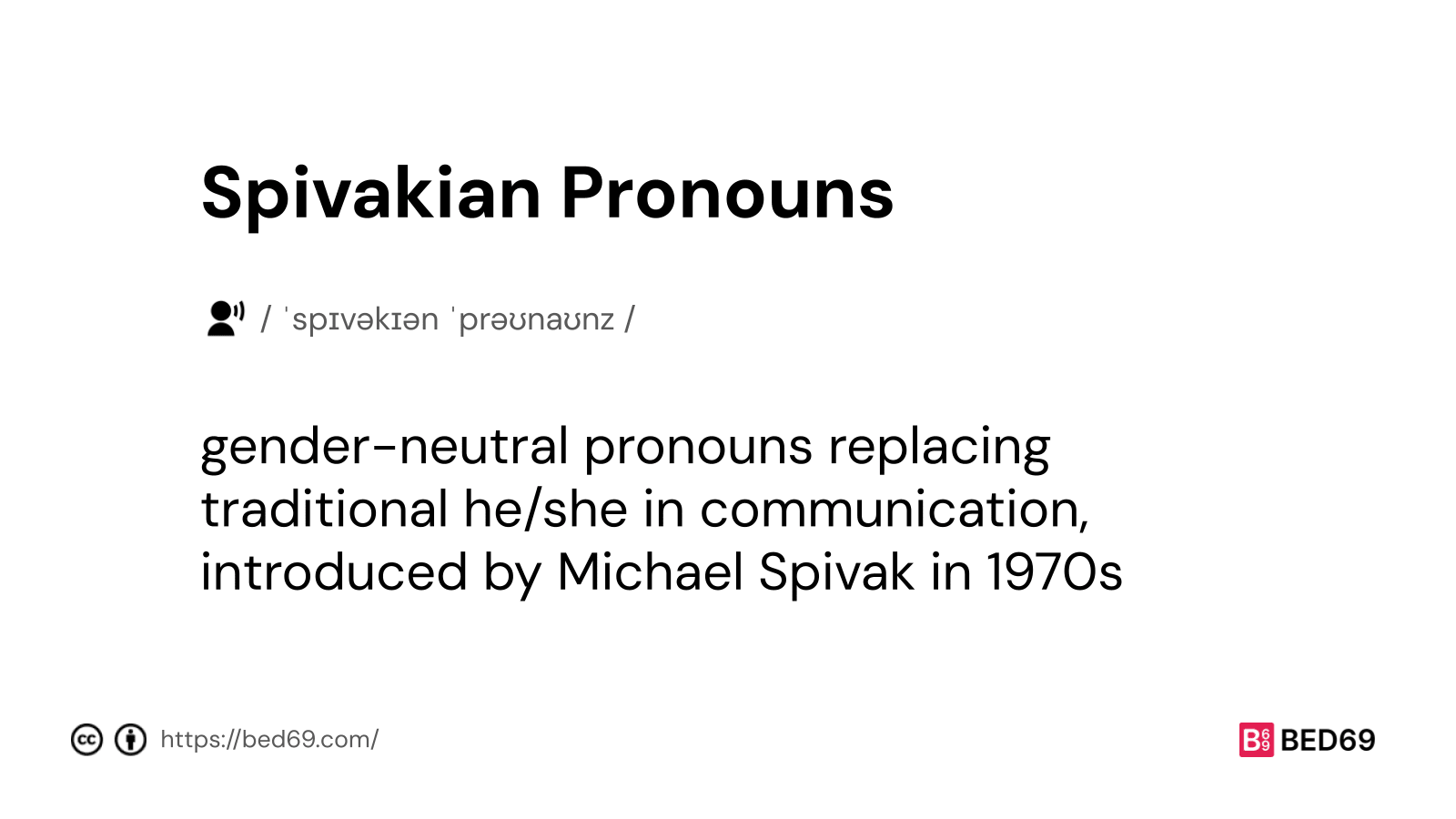What is Spivakian Pronouns?
Spivakian pronouns are gender-neutral words created by Michael Spivak. They replace he/she in communication. These pronouns are: Subject: e, Object: em, Possessive Adjective: eir, Possessive Pronoun: eirs, Reflexive: emself. Originating in the late 1970s, they gained recognition in 1991.
Spivakian Pronouns pronunciation: / ˈspɪvəkɪən ˈprəʊnaʊnz /

How does Spivakian Pronouns impact language norms
Spivakian pronouns, developed by mathematician Michael Spivak, provide gender-neutral alternatives to traditional pronouns. These pronouns—e, em, eir, eirs, and emself—can be used by anyone seeking inclusive language options. By using Spivakian pronouns, individuals can communicate without relying on gender-specific terms, fostering a more inclusive environment for all.
The history of Spivakian pronouns traces back to the 1970s, with their popularization occurring in 1991 on the game LambdaMoo. These pronouns gained recognition when the game allowed players to select “spivak” as a gender choice, subsequently incorporating the pronouns e, em, eir, eirs, and emself. This innovation marked a significant step towards embracing gender diversity and promoting linguistic inclusivity.
In essence, Spivakian pronouns offer a simple yet impactful way to address the limitations of gendered language. They empower individuals to express themselves authentically and respectfully, fostering a more inclusive and welcoming discourse for all.
Can Spivakian Pronouns enhance communication dynamics
Using Spivakian pronouns in communication can promote inclusivity and respect for diverse gender identities. By adopting these gender-neutral pronouns, individuals can create a more welcoming environment for everyone, irrespective of their gender identity. Spivakian pronouns offer a way to address individuals without assuming their gender, fostering a sense of acceptance and understanding in conversations.
These pronouns can enhance communication dynamics by encouraging mindfulness and sensitivity towards gender diversity. They provide a tool to acknowledge and validate different gender expressions, fostering a more inclusive dialogue. Using Spivakian pronouns can help avoid assumptions about gender identity, making conversations more respectful and open to all individuals.
Incorporating Spivakian pronouns can lead to increased awareness and acceptance of gender diversity in language use. It enables individuals to express themselves authentically and comfortably, promoting a culture of inclusivity and respect in communication. Embracing these pronouns can contribute to creating a more inclusive and supportive communication environment for everyone involved.
Explore other interesting terms:
